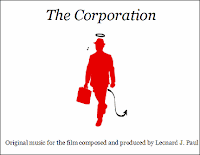Being very new to me, I initially thought that blogging would be a rather painful and boring process. However, much to my amazement this was not generally the case. I often found myself very immersed in my blog writing; this is particularly shocking since I prefer more formal styles of writing.
As is noticeable in my first couple of blog entries, I tried to model my weekly posts as if they were essays. I usually wrote more formally and usually did not add pictures, links or other interactive aspects. Nevertheless, because I feared my grades would drop in the blog I started including pictures and links to my posts. Ironically, I ended up actually enjoying this part. In fact, in some of my posts I even added my own pictures, so as to give a personal character to it. For example, I recall posting a picture of me playing percussion, which I used to illustrate how I can have a positive influence on other people through my art. Additionally, I later added a picture of a perplexed me, in order to show my state of confusion at the time of writing that particular post.
Despite the epiphany which I have so far described while writing my blog, there have been some moments of frustration. I must say certain posts felt endless and pointless. For example, blog #2 was very boring for me. We had to make a list of green things we already did. To be honest, I felt like I was in elementary school once again. Sort like writing that “what you did over the summer” thing we used to do after returning to elementary school in September.
Overall, I think blogging was very effective; it not only works for a writing intensive course, but it also makes the task of writing weekly assignments much more easily and comfortably. In a way blogging allows for more freedom and personality.
Meeting the deadlines was not a problem at all, because we were not restricted to a specifc hour or class. Instead, all we had to do was submit the writing before a certain time. And that, it think, worked amazingly.
Nevertheless, this freedom of expression can either work very well or not well at all. You might get some students who enjoy writing this type of stuff, yet others because of its apparent freedom undermine the writing.
I think there is a possibility that I might continue blogging. Maybe not in the near future though.
As is noticeable in my first couple of blog entries, I tried to model my weekly posts as if they were essays. I usually wrote more formally and usually did not add pictures, links or other interactive aspects. Nevertheless, because I feared my grades would drop in the blog I started including pictures and links to my posts. Ironically, I ended up actually enjoying this part. In fact, in some of my posts I even added my own pictures, so as to give a personal character to it. For example, I recall posting a picture of me playing percussion, which I used to illustrate how I can have a positive influence on other people through my art. Additionally, I later added a picture of a perplexed me, in order to show my state of confusion at the time of writing that particular post.
Despite the epiphany which I have so far described while writing my blog, there have been some moments of frustration. I must say certain posts felt endless and pointless. For example, blog #2 was very boring for me. We had to make a list of green things we already did. To be honest, I felt like I was in elementary school once again. Sort like writing that “what you did over the summer” thing we used to do after returning to elementary school in September.
Overall, I think blogging was very effective; it not only works for a writing intensive course, but it also makes the task of writing weekly assignments much more easily and comfortably. In a way blogging allows for more freedom and personality.
Meeting the deadlines was not a problem at all, because we were not restricted to a specifc hour or class. Instead, all we had to do was submit the writing before a certain time. And that, it think, worked amazingly.
Nevertheless, this freedom of expression can either work very well or not well at all. You might get some students who enjoy writing this type of stuff, yet others because of its apparent freedom undermine the writing.
I think there is a possibility that I might continue blogging. Maybe not in the near future though.











